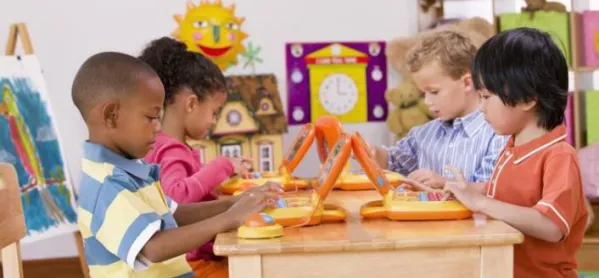The government is searching for a provider to deliver a new £1 million network of “Early Years Stronger Practice Hubs” in England.
The Department for Education says the chosen organisation will support early years providers and practitioners “to adopt evidence-based practice improvements to address key Covid-19 recovery issues”.
The DfE tender notice also says the hubs will be created within existing strong early years settings with “expertise and knowledge of what works to support child outcomes”. It adds that these settings will have “demonstrable experience” of delivering effective practice for the benefit of children.
The programme, backed with £999,999 funding, will run for just over two years, from July this year to October 2024, and will be part of the government’s £180 million investment in recovery support in the early years sector.
Early years hubs ‘will help to address the impact of Covid’
The DfE says the wider programme aims to build a “stronger, more expert workforce...to deliver high-quality teaching and help address the impact of the pandemic” on younger children, particularly in “the most disadvantaged areas”.
An engagement event for the tender took place last December, but few details were given about the opportunity publicly at the time.
Michael Freeston, director of quality improvement for the Early Years Alliance (EYA), told Tes it would be useful to see the detail when the tender is finally published.
Mr Freeston said: “Anything that supports development in the sector should be welcomed.” However, he added that it “should be developed working with the workforce rather than a presumption of a deficit model”.
The tender notice comes days after new figures revealed that a third of primary schools have yet to sign up to the government’s £17 million early years language catch-up scheme, designed to help Reception-age pupils’ communication skills.
The DfE says the new hubs will build on the new EYFS framework introduced last September, which aims to support providers to improve expertise and knowledge of “what works to support child outcomes”.




